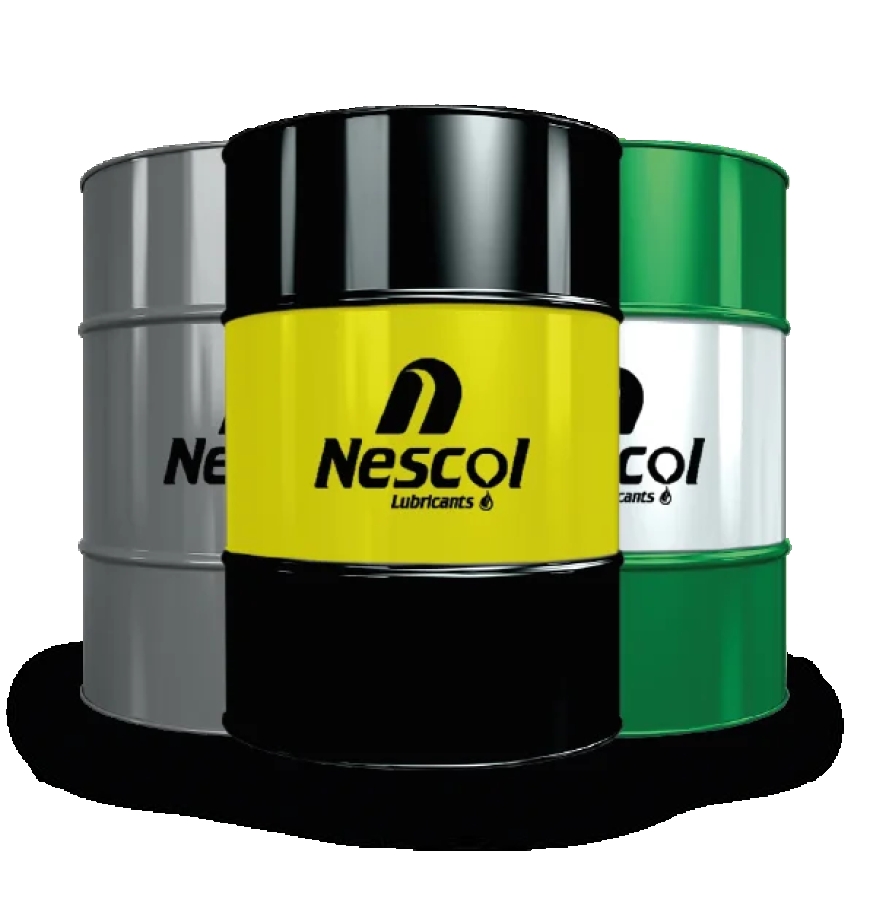Marine Lubricants: Oil Types, Functions, and Their Critical Role in Ship Engine Performance

Marine lubricants are the lifeblood of ship engines, ensuring smooth operation, reducing wear and tear, and enhancing fuel efficiency. The maritime industry relies on high-performance lubricants to withstand extreme conditions—high temperatures, corrosive seawater, heavy loads, and prolonged operation. Selecting the right lubricant is not just about compliance; it directly impacts engine longevity, operational costs, and environmental compliance.
In this comprehensive guide, we will explore:
-
The different types of marine lubricants and their specific applications.
-
Key functions of marine lubricants in ship engines.
-
How lubricants influence fuel efficiency and emissions.
-
Industry standards and certifications for marine oils.
-
Best practices for lubricant selection and maintenance.
-
Why Nescol Marine Oil stands out as a premium choice.
By the end of this article, you’ll have a deep understanding of marine lubricants and how they contribute to optimal engine performance.
1. Types of Marine Lubricants and Their Applications
Marine lubricants are categorized based on their formulation and the engine components they protect. The main types include:
1.1 Cylinder Oils (For Crosshead Engines)
Used in: Large two-stroke marine diesel engines (common in cargo ships and tankers).
Key Properties:
-
High alkalinity (BN 40-100) to neutralize acidic combustion byproducts (sulfur oxides).
-
Thermal stability to withstand extreme heat (up to 300°C near piston rings).
-
Anti-wear additives (ZnDTP, MoS₂) to protect cylinder liners and piston rings.
Function:
-
Forms a protective film to prevent scuffing and micro-welding in the cylinder.
-
Cleans deposits from piston ring grooves to maintain compression.
-
Reduces corrosion caused by sulfuric acid formation.
Common Brands:
-
Nescol Cylinder Oil 50100 (BN 100 for high-sulfur fuels).
1.2 System Oils (For Trunk Piston & Crankcase Lubrication)
Used in: Four-stroke engines and some two-stroke engines with a common sump.
Key Properties:
-
Moderate alkalinity (BN 5-30) for crankcase protection.
-
Detergents & dispersants to prevent sludge buildup.
-
Oxidation inhibitors to extend oil life.
Function:
-
Lubricates bearings, crankshafts, and camshafts.
-
Cools engine parts by dissipating heat.
-
Removes contaminants through filtration systems.
Common Brands:
-
Nescol System Oil 3000 (BN 12, ideal for medium-speed engines).
1.3 Marine Gear Oils (For Transmission & Propulsion Systems)
Used in: Reduction gears, thrusters, and stern tubes.
Key Properties:
-
Extreme Pressure (EP) additives (sulfur-phosphorus compounds).
-
High viscosity index (VI) for stable performance in varying temperatures.
-
Anti-foaming agents to prevent air entrainment.
Function:
-
Protects gears from pitting and scoring.
-
Reduces friction losses in propulsion systems.
-
Prevents water contamination in stern tube bearings.
Common Brands:
-
Nescol Gear Oil EP 680 (ISO VG 680 for heavy-duty applications).
1.4 Hydraulic Oils (For Steering & Control Systems)
Used in: Hydraulic pumps, winches, and deck machinery.
Key Properties:
-
Anti-wear (AW) additives for pump protection.
-
Low pour point for cold-weather operation.
-
Demulsibility to separate water from oil.
Function:
-
Ensures smooth hydraulic valve operation.
-
Prevents rust and corrosion in wet environments.
-
Maintains consistent pressure in steering systems.
Common Brands:
-
Nescol Hydraulic Oil AW 46 (ISO VG 46, zinc-free for environmental safety).
1.5 Greases (For Bearings & Deck Machinery)
Used in: Wire ropes, stern tubes, and roller bearings.
Key Properties:
-
Lithium or calcium complex thickeners.
-
Solid lubricants (graphite, molybdenum disulfide).
-
Water-resistant formulations.
Function:
-
Provides long-term lubrication in hard-to-reach areas.
-
Prevents saltwater washout in marine environments.
-
Reduces friction in sliding contacts.
Common Brands:
-
Nescol Marine Grease EP-2 (NLGI Grade 2, ideal for stern tubes).
2. The Critical Role of Marine Lubricants in Ship Engines
2.1 Reducing Friction & Wear
-
Boundary Lubrication: Prevents metal-to-metal contact in high-load zones (e.g., piston rings).
-
Hydrodynamic Lubrication: Forms an oil film in bearings and journals.
2.2 Cooling Engine Components
-
Heat transfer oils absorb heat from pistons and bearings.
-
Thermal stability prevents oil breakdown at high temps.
2.3 Neutralizing Acidic Byproducts
-
Sulfur in fuel forms sulfuric acid; high-BN oils neutralize it.
-
Prevents cold corrosion in cylinder liners.
2.4 Cleaning & Preventing Deposits
-
Detergents keep piston rings free from carbon buildup.
-
Dispersants suspend soot particles to prevent sludge.
2.5 Enhancing Fuel Efficiency
-
Low-friction oils reduce energy losses.
-
Optimal viscosity minimizes internal drag.
2.6 Extending Engine Life
-
Wear protection reduces overhaul frequency.
-
Oxidation resistance extends oil drain intervals.
3. Industry Standards & Certifications
-
ISO 8217: Specifies marine fuel & lubricant quality.
-
MAN & Wärtsilä Approvals: OEM-specific requirements.
-
ECOLABEL: For environmentally acceptable lubricants.
4. Best Practices for Lubricant Selection & Maintenance
-
Monitor oil condition (regular lab testing).
-
Follow OEM guidelines for BN and viscosity.
-
Store lubricants properly to avoid contamination.
5. Why Choose Nescol Marine Oil?
-
Superior additive technology for extreme conditions.
-
Extended drain intervals reducing downtime.
-
Compliance with major OEM approvals.
Conclusion
Marine lubricants are vital for engine efficiency, longevity, and compliance. By selecting high-performance oils like Nescol Marine Oil, ship operators can ensure smoother operations, lower maintenance costs, and reduced environmental impact.
For optimal engine protection, trust Nescol Marine Oil—engineered for excellence at sea.

































































![https //g.co/recover for help [1-866-719-1006]](https://newsquo.com/uploads/images/202506/image_430x256_684949454da3e.jpg)








































































